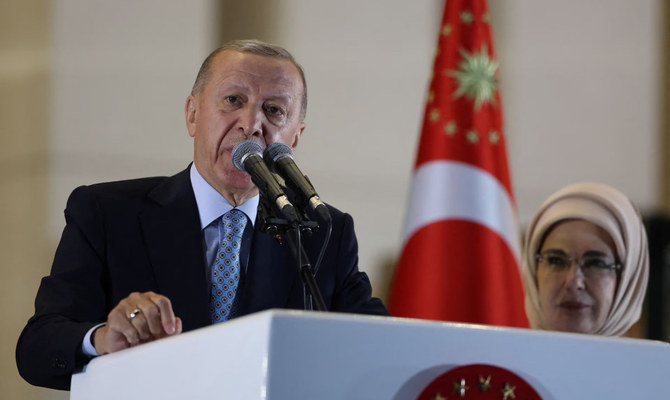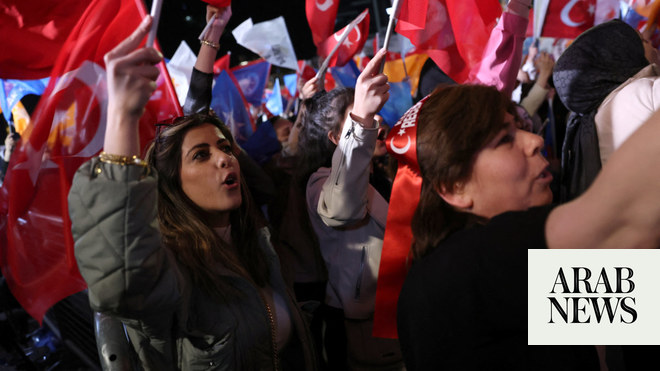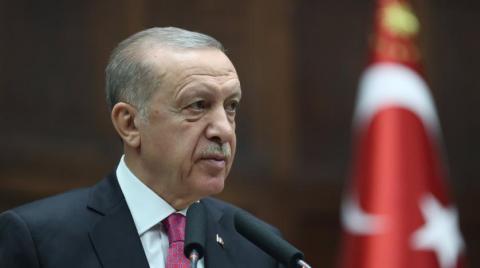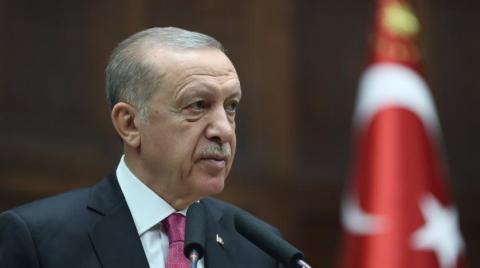
Turkish President Recep Tayyip Erdogan last week announced his new Cabinet. He changed almost all ministers, leaving only Fahrettin Koca, the minister of health, and Mehmet Nuri Ersoy, the minister of culture and tourism, in their posts. Erdogan has a habit of testing new recruits and, if he does not find them suitable, he immediately turns to new faces. The present Cabinet is unique in terms of the highest number of new members.
All members of the Cabinet are distinguished people in their domains, but three of them attract extra attention because of the importance of their ministries. They are Mehmet Simsek, the new minister of finance, Hakan Fidan, the minister of foreign affairs, and Gen. Yasar Guler, the minister of defense.
Simsek was born to a Kurdish family in Turkiye’s southeastern province of Batman. He learned Turkish after he went to school. He is an important political figure because of his brilliant economic career. He completed his university studies at the prestigious Imperial School of Administrative Studies (Mulkiye), which was established in 1859. Many high-level Ottoman bureaucrats graduated from this school, including the former president of Syria, Shukri Al-Quwatli.
Simsek completed his master’s degree at Exeter University in the UK. Between 1993 and 1997, he worked as chief economic analyst in the US Embassy in Ankara. He then worked for a short period in the US at the Union Bank of Switzerland and later at Deutsche Bank in Turkiye.
He became the top administrative economist for Merrill Lynch covering the Middle East and Africa, before switching to Central Europe and Russia. Erdogan picked him up when he was in this post.
His position has been a subject of tough bargaining with Erdogan. He disagreed with the president on the economic policy to be followed. After having served as finance minister between 2009 and 2015, he quit this post and returned to his international finance business.
Simsek’s name returned to the forefront immediately before the first round of last month’s elections. The ruling AKP party’s spokesman Omer Celik said that Simsek was not considering getting involved in active politics, but added that he was prepared to extend any assistance in case he was asked. Presidential spokesman Ibrahim Kalin expressed the same idea with slightly different words.
A pessimistic public opinion poll company, Aksoy, operating in Istanbul, had stated that Simsek’s refusal to join the AKP’s ranks was neither the first nor the last sign of the bruised support for the AKP government. In fact, Simsek — after talking to Erdogan on the Monday before the May 14 elections — announced on his Twitter account that he was not interested in a return to active politics. These continuous changes prove once more how slippery the political ground is in Turkiye.
A senior journalist, Toygun Atilla, said that when Erdogan proposed that Simsek should sit in the command seat of Turkiye’s economy, he accepted it by saying: “This is a service for my country and I am ready to assume this responsibility.”
In the very first statement he made after assuming the ministerial job, Simsek said: “Turkiye’s economy has no other option but returning to the rational ground.” This is a clear statement that the country’s economy was previously not sitting on rational ground. Simsek will now try to salvage what is salvageable, but the challenges lying ahead are gigantic.
New Finance Minister Mehmet Simsek will now try to salvage what is salvageable, but the challenges lying ahead are gigantic.
Yasar Yakis
The Foreign Ministry has been entrusted to Fidan, the former head of the National Intelligence Organization. He started his career as a noncommissioned officer. He later completed his studies at the University of Maryland in the US and at the Bilkent University, Ankara. From 2001 to 2003, he worked as a senior political and economic adviser at the Australian Embassy in Ankara. His immediate agenda includes the NATO Summit to be held next month in Vilnius, Lithuania. This will be followed in September by the G20 Summit in New Delhi and the 78th session of the UN General Assembly.
Ankara last week hastily dispatched a battalion-sized peacekeeping force to Kosovo because it wants to gain NATO’s favor in several alliance-related issues.
Sweden’s NATO membership is a complicated foreign policy issue for Turkiye because Stockholm believes it has fulfilled all the required criteria by passing three laws to meet Ankara’s expectations. Turkiye, however, believes that Sweden has to draw a sharper line between acts of terror and freedom of expression. The Gordian knot of this subject will probably be cut by the US.
As the next US presidential election will be held in November 2024, Turkiye wants to solve the F-16 fighter aircraft issue before Congress becomes more sensitive on this subject.
Turkiye also wants to bring the Nagorno-Karabakh issue to a satisfactory conclusion. The participation of Armenian Prime Minister Nikol Pashinyan in Erdogan’s oath-taking ceremony offers a promising signal for the future. This may be a further step in the thaw between Ankara, Azerbaijan and Armenia.
Fidan was directly involved in the negotiations with the Kurds within the framework of the Oslo process. And he made substantive contributions in almost everything concerning Syria. Erdogan’s choice of Fidan for this important job may be aimed at him directly solving several complicated issues.
Ozer’s choice for the post of minister of defense is reminiscent of an old practice in Turkiye of giving this job to the military top brass. The chain of command is important in the army. All kinds of complications can be expected once this chain is disrupted. Former Defense Minister Hulusi Akar proved his loyalty by skillfully controlling the 2016 military uprising initiated by the supporters of the self-exiled Muslim cleric Fethullah Gulen.
Turkiye has entered a new era following the elections that took place last month. Everyone looks at Simsek in particular. A more rational management of the economy may now be expected, but we should refrain from expecting miracles from him.
• Yasar Yakis is a former foreign minister of Turkiye and founding member of the ruling AK Party.
Twitter: @yakis_yasar












